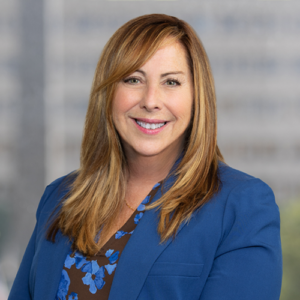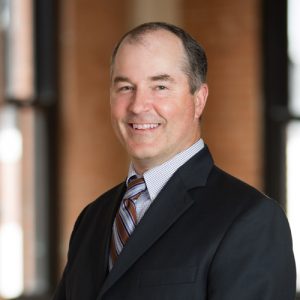On April 29, 2021, the U.S. Department of Health and Human Services’s Office of Inspector General (“OIG”) posted Advisory Opinion No. 21-02 (“Advisory Opinion”), a favorable opinion involving an ambulatory surgery center (“ASC”) joint venture and related safe harbors to the Anti-Kickback Statute (“AKS”). This opinion is significant for many reasons, including:
- It is the first ASC-focused OIG opinion in over 10 years;
- It is the first to contemplate investment by an ASC manager and a health system’s employed physicians, both of which are in a position to influence referrals to the ASC; and
- It provides parties clear guidance for the importance of adopting significant safe guards to ensure compliance with the AKS, particularly when the arrangement will not qualify for safe harbor protection.
The Proposed Arrangement and Recommended Safeguards
Under the proposed arrangement, a health system, eight of its employed physicians (orthopedic and neurosurgeons), and the ASC management company would invest in a new ASC (“Proposed Arrangement”). The health system and the physician investors collectively would each have investment interests of 46% and the manager would have an 8% ownership interest. Individually, the physician investors would each have ASC ownership interests ranging from 4% to 8%. All ASC investors would invest directly in the ASC (i.e., no investor would invest via a pass-through entity), and neither the ASC nor any investor would loan funds to, or guarantee a loan for, any other investor. Ownership would not be offered based on previous or expected future referrals and profits would be distributed proportionately to capital investments.
OIG indicated that the Proposed Arrangement, as structured, would fail to meet all elements of the Hospital-Physician ASC Safe Harbor in two meaningful ways: 1) the health system would be in a position to make or influence referrals directly or indirectly to the physician investors and/or the ASC through its employment agreements with its affiliated physicians; and 2) the three neurosurgeon investors would regularly perform some cases in the investment center but would not meet the two “one-third tests” of the safe harbor as a result of their practices being primarily comprised of inpatient procedures. OIG favorably acknowledged the various safeguards proposed by the parties to mitigate the risk of fraud and abuse, including the following:
- The neurosurgeons who would not meet the one-third tests of the safe harbor would use the investment ASC on a regular basis as an extension of their practices, and the physician investors would not cross-refer ASC-qualified procedures to other investors to increase the ASC distributions;
- The health system would not encourage or track referrals by its affiliated physicians or otherwise create incentives to refer; any compensation it paid to the affiliated physicians would be fair market value and not take into account the volume or value of referrals; and it would not include any costs related to the ASC on its cost report, unless required to do so;
- The manager would not make or influence referrals to the ASC and would not have physician ownership;
- No offers of investment would be based on the potential for referrals, no loans would be made to investors and all distributions would be proportionate to the investments;
- The ASC and its investors would provide notice to the patients of the investment interests and would not discriminate against those patients receiving assistance under any federal health care program; and
- All ancillary services performed at the ASC would be related directly and integrally to primary procedures performed at the ASC and would not be billed separately to any federal health care program.
Real Estate Implications
In the Proposed Arrangement, the ASC would operate in a newly constructed medical facility owned by a real estate joint venture (the “Real Estate Company”) that is owned by the health system, the physician investors and the manager. The ASC would enter into space and equipment leases as well as services arrangements with the health system and the Real Estate Company. The health system certified that any space or equipment leased by the ASC from the health system or the Real Estate Company and any services performed by either for the ASC would comply with the AKS safe harbors for space rental, equipment rental or personal services and management contracts and outcomes-based payment arrangements, as applicable.
Practical Takeaways
Structuring arrangements to comply with all elements of an AKS safe harbor continues to be the best practice and only way to ensure AKS protection. However, following this opinion, parties may be more willing to enter into joint venture ASCs that do not satisfy all elements of the applicable ASC Safe Harbor so long as the arrangements include sufficient safeguards such as those highlighted above. Further, with the prevalence of hospital system employed physicians in the industry, a hospital may welcome the opportunity to engage their employed physicians in an ancillary venture.
Finally, hospital-physician arrangements often include the ownership of real estate that is leased to the venture, along with other various compensation arrangements. The Advisory Opinion makes clear that, when leased real estate and other ancillary arrangements are involved, it is critical that the parties to these arrangements ensure that related arrangements do comply with an applicable safe harbor and/or that a risk assessment has been conducted if certain safe harbor elements cannot be satisfied.
If you have any questions or would like additional information, please contact:
- Andrew Dick at (317) 977-1491 or adick@wp.hallrender.com;
- Alyssa James at (317) 429-3640 or ajames@wp.hallrender.com;
- Jenny Struck at (317) 429-3674 or jstruck@wp.hallrender.com;
- Keith Dugger at (214) 615-2051 or kdugger@wp.hallrender.com; or
- Your regular Hall Render attorney.
Special thanks to Ben Jamison for his assistance with preparing this article.
Hall Render blog posts and articles are intended for informational purposes only. For ethical reasons, Hall Render attorneys cannot—outside of an attorney-client relationship—answer an individual’s questions that may constitute legal advice.




